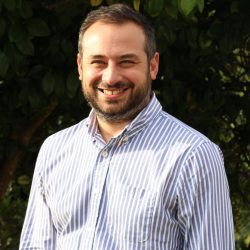Patricio Belloy, Universidad Austral de Chile (Chile)
Research Project Title: Community Research in Voc-Tech: Tracking the Success of Renewables Education
Our main research question is: what has been the impact of Paillaco’s Voc-Tech School implementation of renewable energy education and how can the district take advantage of the graduates’ skills? To address this question, we will work with teachers, management staff, students, alumni, parents, and other community members to evaluate and map the success of students who have completed the renewable energy program since 2017 until now. Those former students were trained to perform installation, maintenance and repair of renewable energy equipment. As a start of a first phase, we will design the monitor and evaluation strategy through different participatory workshops with the school community. The first workshop will assess the state of the relationship between the school and its graduates and determine what expectations are between current and former students and the school. Then, we will help the community devise a utopian situation where the school community supports and is supported by former students in terms of employment and academic opportunities, among other possibilities. Finally, we will co-create strategies to address the gap between the current status and the utopian scenario.
To conduct this whole phase, we will use the CEM-UACh approach that integrates methodologies such as Dragon Dreaming and Max-Neef’s Matrix of Fundamental Human Needs. CEM has extensive experience convening local stakeholders to create common paths forward using disruptive, participatory methodologies. Their approach was streamlined while carrying out workshops with different communities of the district of Paillaco during their work with the Talloires’ YEPI project. As a second phase, we will use a qualitative approach to co-develop interview protocols and a questionnaire to know more about the life and expectations of graduates after they graduated from Liceo RAP. After contacting and interviewing/surveying former students, we will process the data collected with members of the school community, teaching them introductory coding and data analysis. In a third phase, we will integrate the most relevant information into the MapHub software, which will allow us to map the school graduates within the district and regularly track their progress in the job market or wherever they use their skills. The business version of MapHub allows team collaboration that will allow the partnership to work jointly or independently, as needed. Using the same tool, and with the support of the municipality of Paillaco, we will map employment opportunities in the district that are related to renewable energy at all scales, such as the installation of solar powered water wells for animal consumption or windmills used for domiciliary energy provision in rural areas. We hope that this will help recruiters know that there are young folks who are knowledgeable about renewable energy, and they are located close to where they are developing photovoltaic or wind energy projects.
